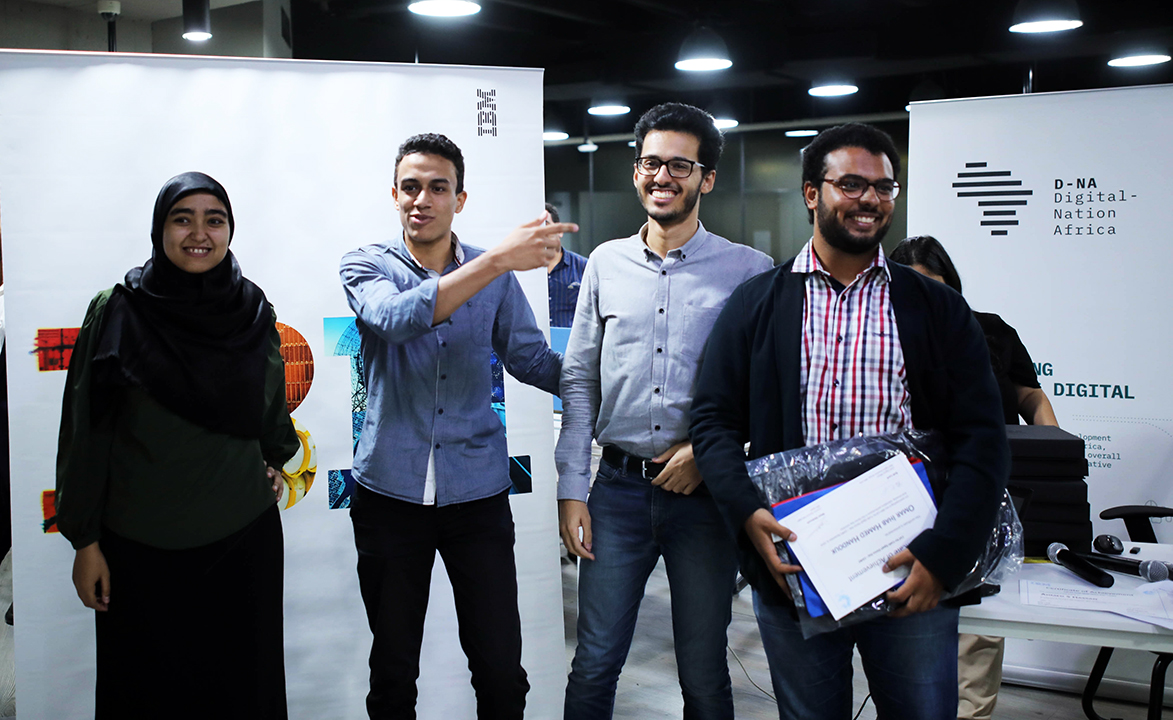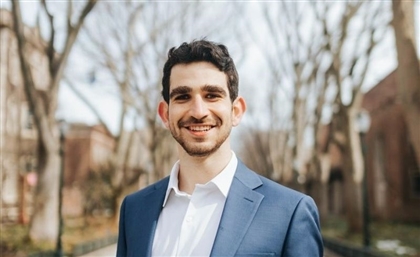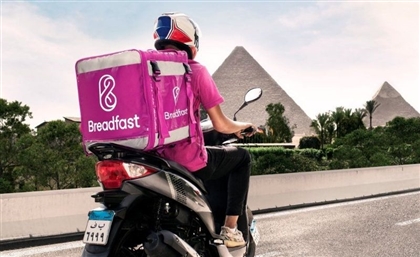Answering To IBM’s Call To Code, These Egyptian Coders Want To Save Lives On The Blockchain
While natural disasters have no bias towards or against particular places, many NGOs might. This software running on blockchain aims to depoliticize humanitarian caravans.

In November 2017, during the Ebola crisis in West Africa, the Red Cross reported that $6 million had been lost to theft and fraud. One of the flaws that NGO's have in common is the lack of a system that can trace the progress of a certain caravan and in turn verify whether it was received by the people in need or not.
Positioning itself as an open source for around 22 million coders around the globe, US-based tech giant IBM has launched a five-year initiative Call for Code annual competition. This year, coders were assigned to develop software solutions to growing challenges victims of natural disasters face.
After signing a memorandum of understanding with RiseUp Summit, IBM’s Chief Digital Officer, Bob Lord visited the Greek Campus on November 8th, where Call for Code’s demo day was held. The Egyptian team behind 'Surv-Net' won tickets, flights, and accommodation to IBM’s Think Summit taking place in February 2019 in San Francisco. Surv-Net is a supply-chain-management platform based on blockchain, and is purposed to help humanitarian organisations improve their reliability and efficiency as well as their speed in responding to crisis.
“The problem is that there is no collaboration between those entities who send supplies,” Surv-Net’s Blockchain Architect, Hussein Abdel-Aal, tells Startup Scene. “The idea behind our solution is that now when a natural disaster happens, a particular location could receive a huge hype and would consequently receive more supplies than actually needed.”

“With our solution, when a natural disaster occurs, the system will generate reports, assessing the situation, gauging the amount of resources needed.”
The global charity landscape can sometimes get very political. “Some NGOs would even refrain from sending resources so it wouldn’t be known that they have a lot of funds. So as to not discourage potential sponsors and benefactors,” says Ahmed Abdel-Aziz, the team member responsible for Artificial Intelligence at Surv-Net.
During natural disasters, all the NGOs respond without coordination. Airports get busy with transporting cargos and, subsequently, some supplies don’t get sent. And when the supplies reach the destination, they’re not integrated. “With our solution, when a natural disaster occurs, the system will generate reports, while assessing the situation and gauging the amount of resources needed,” Abdel-Aziz says, explaining how the AI-powered system works.
Powered by both blockchain and AI, the software will have access to the amount of resources each NGO has, and in turn will send a notice to the NGOs with the certain amount they need to send to ensure integration and punctuality. “Instead of calling a single SOS hotline, Surv-Net will provide a universal hotline connecting through the software’s virtual agent who will send to all the adequate NGOs registered on the blockchain,” says Abdel-Aziz.
Safaa Tharwat, who has studied Engineering at Cairo University, has been working on Surv-Net’s Android App. “If a natural disaster occurred in Egypt, for example, and we’re going to send food to that place, we’ll place a QR code on the packages so that it's scanned when they reach the destination, and gets logged on the blockchain,” she explains to Startup Scene.
Adding to that, Abdel-Aal says that everything is recorded on the blockchain. “It would be known which supply was received in that particular moment, knowing the reliability of this or that NGO based on the speed of their response,” he says. “In that way, we would be able to update the information on all suppliers; who responds quickly and who doesn’t at all; who has supplies that he doesn’t send; who claims he has supplies that he doesn’t have in reality.”
The software is integrated with two tools; request verification and virtual assistance. “The software will be able to guarantee this is not a false alarm,” Abdel-Aziz adds. “That is by clustering all incoming requests, according to location and time. On the other hand, the chatbot or the virtual agent would be able to communicate with the victims whether as a voice-oriented, an instant SMS-oriented agent or a chatbot that victims would contact through a website.”
This is where Surv-Net’s Full Stack Developer Omar Ehab comes in. “Our frontend’s web development is equipped with IBM Cloud and Databases and IBM services,” he tells Startup Scene. “We integrated those technologies with the frontend using node.js backend, and we started using HTML and angular to make it a simple user interface that doesn’t require any technical background and users could also fill in minimal information so they could report straight away.”
To get all regulations in order, Surv-Net is getting the United Nations on board as a universal regulator. “We put some administrative tools to be easier for the regulator that is on the network to overview suppliers, participants, and the operations so that if there’s any shortage it would intervene to fill the gaps.”

“We were so proud of the winning team because they started to think how they can, in a natural disaster, deliver the supplies to the right person on the right time without fraud or damage.”
IBM has been partnering with Red Cross and Red Crescent since 2011. This year, they decided to call upon the existing 22 million developers of the world to gather and create digital solutions to help save people from natural disasters. “We might not have hurricanes in Egypt, but we do suffer from floods very often,” IBM’s University Relations Leader, Oriette Nayel, tells Startup Scene. “Submissions in Egypt were among the top 10 worldwide. There is a need for IT applications using the latest technologies to solve these issues mainly to spare lives, damage of homes, loss of infrastructure.”
Other than the IBM Think conference in San Francisco, IBM has curated a pool of fresh graduates to hire from. “We have already worked with them, we know their capabilities, and they know our technology,” she adds. IBM’s academic initiatives deliver instructor-led courses specifically in the latest technologies like blockchain, IoT and AI, cloud, among others.
IBM also runs a programme called 'IBM Digital - Nation Africa'; an online platform used by developers, undergraduate students, graduate students, and entrepreneurs. It covers wide range of IT literacy starting from those who are not in the IT field and want to know about the latest technologies, to advanced developers who want to build solutions. So, they filter graduates from these two initiatives accordingly.
“We were so proud of the winning team because they started to think how they can, in a natural disaster, deliver the supplies to the right person at the right time without fraud or damage,” Nayel concludes. The young coders have also won tickets to RiseUp Summit and will be present to network with fellow coders and blockchain architects as well as explore investment opportunities.
All photos courtesy to #MO4Productions.
Photographer: Ashraf Hamed






















